By Dave McBryan
(A detailed account of team Ireland in the Nations Cup with a roundup of other Irish results)
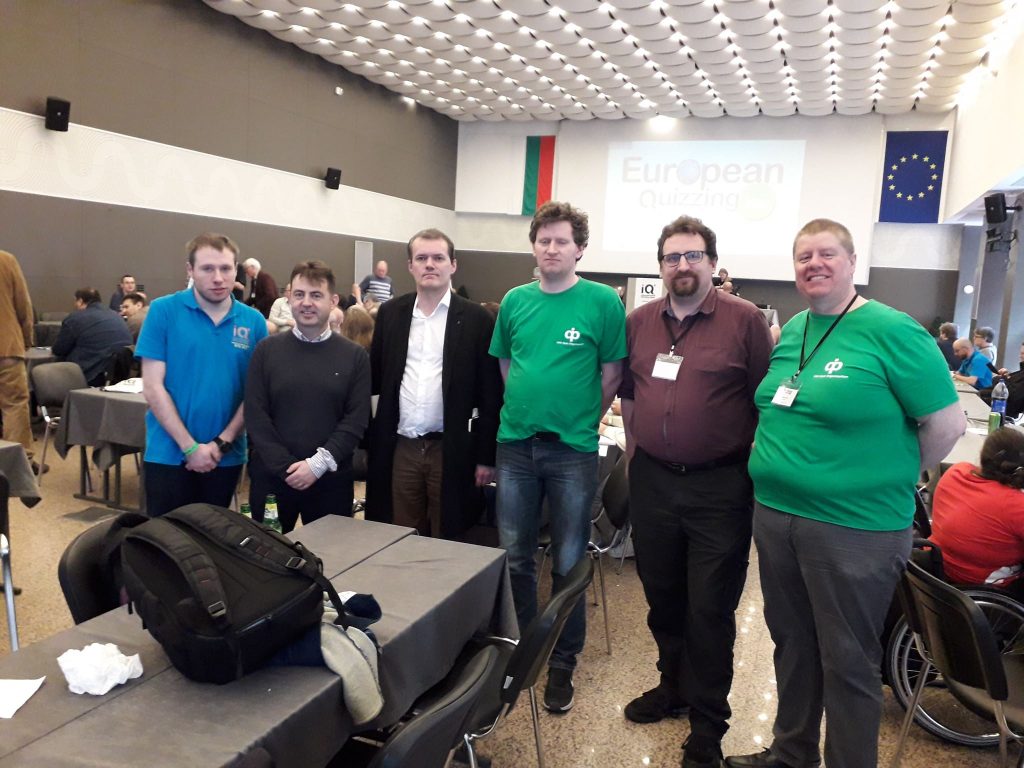
Ireland went into the Nations Cup at this year’s EQC knowing that 2018, when we reached the semi-finals for the first time ever, was going to be a very tough performance to live up to. As the 100-question qualifier progressed, a gap began to develop between the top 5 teams and the chasing pack, and thankfully we were on the right side of it, along with perennial contenders England, Belgium, Norway and Estonia. England were ahead by a small margin, but the rest of us were only ever separated by a point or two, and with the order changing every round, it was anyone’s guess which one of us would end up in 5th place and miss out on a semi-final spot.
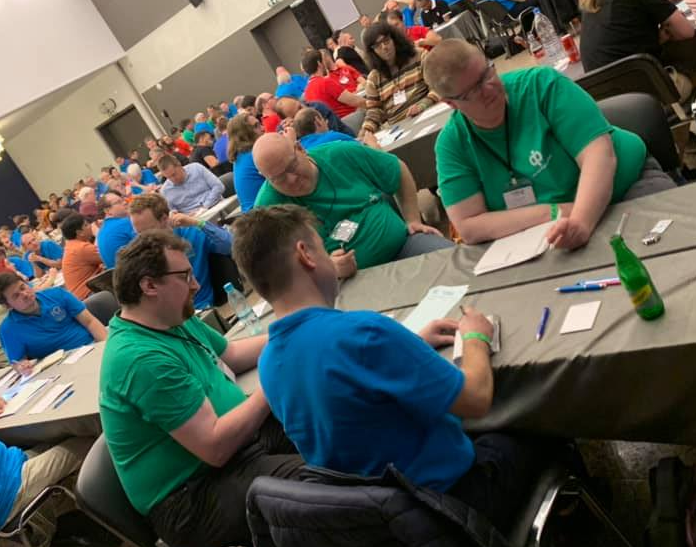
A tough penultimate round for Ireland left us in that unfortunate position going into the last round on 55/80, but with Belgium, Norway and Estonia all tied on 56, we knew that all we needed was to beat any one of those by a single point in the final round (the countback system that decides ties would work in favour of the team scoring more in the final round). We managed 15/20 in that round and anxiously waited to see how the others had done: Belgium 16, Norway 15, but Estonia 14! In a carbon copy of 2018, we had made it by the skin of our teeth, tying for 4th place with Estonia, who can justifiably feel very unlucky to lose out on countback for two years running. Final scores in the qualifier were England 75, Belgium 72, Norway 71, Ireland & Estonia 70. The chasers some way behind were led by Croatia on 63.
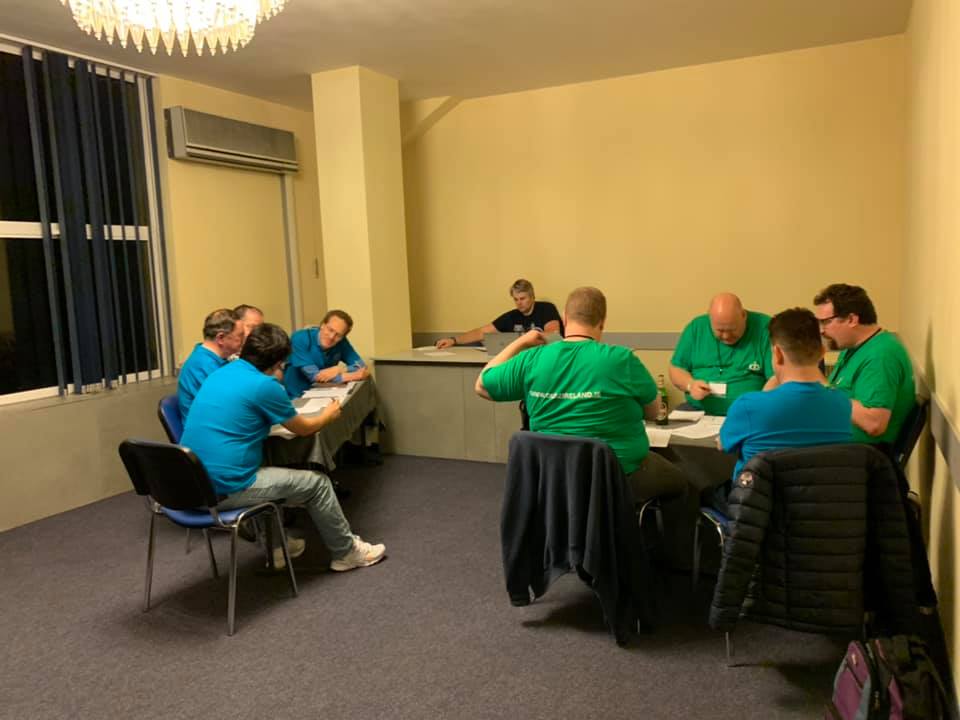
As the 4th place qualifiers, we then faced the toughest possible semi-final against England – a team all 4 of whom have now been crowned individual EQC champions. We got off to a bad start, going 8-2 down after the opening 2 rounds, but pulled back to level the game at 14-all. From there on, it was nip and tuck, with 24-all at half time, and 39-all after 14 of the 20 question trios. We then took the lead 45-39 at the ¾ mark, but the subject choices in the final quarter didn’t go our way, and with England barely putting a foot wrong, they ran out winners 66-54. Although we lost, it was heartening to have genuinely been in a game against the absolute best in the business (more so than we were in our 2018 bronze medal defeat to them, so progression in the right direction). As all Celtic Nations players will know, in this format the luck of the subject picks can be crucial – looking at the stats, 6 of the eventual 12 point margin can be attributed to that (the unanswered 2-pointers were evenly split, but of the 3-point questions that neither team knew, 4 of 6 were in our selections), indicating that where once there was a huge gulf between the sides, we’re now close enough behind that pulling an upset is within reach with a little of that luck on our side – a positive sign for the future.
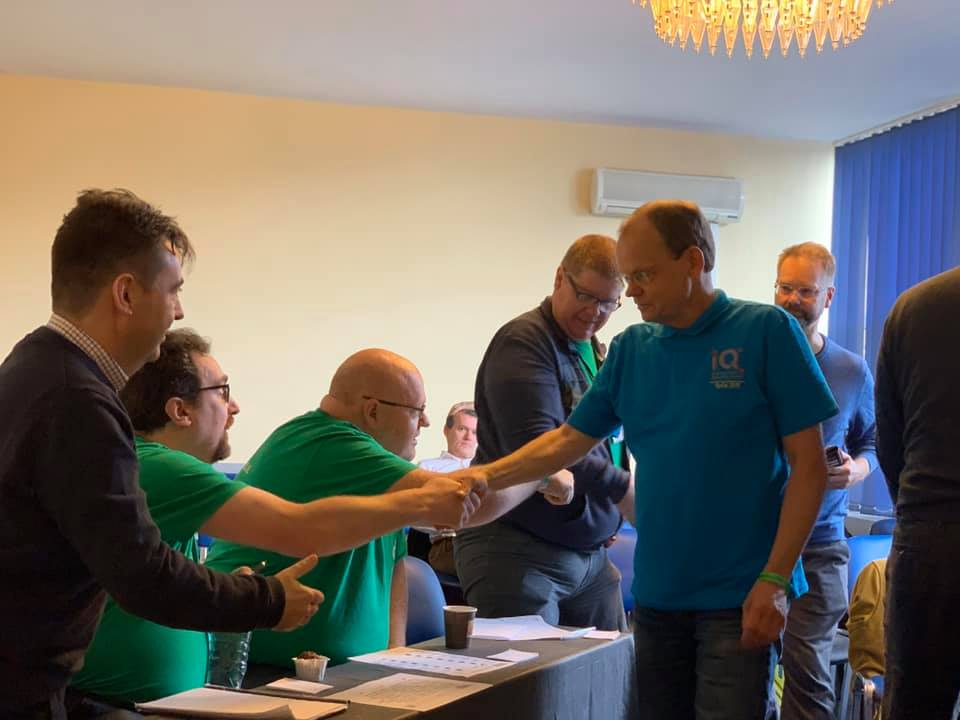
So that left us in a bronze medal match for the second year running, this time against the defending champions Norway. This one swung back and forth the whole way, with the lead changing hands several times and the gap never more than 6 points until the last 4 sets of questions. At that point, Ireland led 40-37. On a difficult question set, full houses had been few and far between, with both teams having managed only one each from the first 16 sets. We produced another at just the right time to take a 49-37 lead, but could only watch as Norway answered with not one but two of their own full houses to go 55-49 up, leaving us needing to get all 3 of the final questions to win, or 2 to tie if Norway didn’t take the other.
What followed will haunt me for a long time: within the first few words of the (very long) question, I knew exactly who was being asked for – the 18th century Scottish author of the Ossian cycle. As the Scottish-resident member of the team, this was clearly one for me. It’s not a total giveaway, but an easy enough question at this level, and certainly a chestnut within Scottish quizzing. I’ve written, asked and answered it plenty of times, but I found myself completely blanking on his name. 30 agonising seconds of head-wracking couldn’t dredge up James Macpherson, and Norway supplied it to clinch the game. With the match gone, I wasn’t thinking clearly anymore, and similarly blanked on the equally gettable follow-up question asking for Fingal, though Norway didn’t know that one, and the third was a tougher one that neither team knew. As far as I was concerned, all that meant was that I’d cost Ireland a tie rather than a win, which was little consolation. Final score was 58-49 (for what it’s worth, the stats in this one show that the subject choices broke marginally against Ireland again, but it was definitely a game within reach despite that).
Disappointing ending aside, making the semi-finals again has to go down as a success for the team. The foursome of Mark Henry, Lorcan Duff, David Lea and myself has been constant for a few years now, and I think that worked to our advantage: as we’ve got more familiar with each other, we’ve become better at knowing who to listen to on what subjects, and this year we functioned very well as a team, catching each other’s mistakes and working together to get several answers none of us would have managed on our own. Although there were a couple of errors in the semi-final and bronze match, I felt this was the first time where we basically didn’t leave any points on the table in the qualifier (and of course, it needed a performance of that level to make the top 4).
The Aspirational Cup runs parallel to the Nations Cup and featured the Ireland B team of Kevin Jones, Patrick Carthy, Stephen Dodding & Joseph O’Donoghue. In a strong field eventually won by England B, they scored 37 in the qualifier to put them 21st of 32 teams. All but the top 4 teams then played along with the semi-final questions to extend their competition, though unfortunately Stephen had left without realising this was happening, so Ireland B were a man down for this second part of the competition. They maintained their position despite that, holding off Germany B on countback for 21st in the final standings, so Steve’s got to be pleased with that.
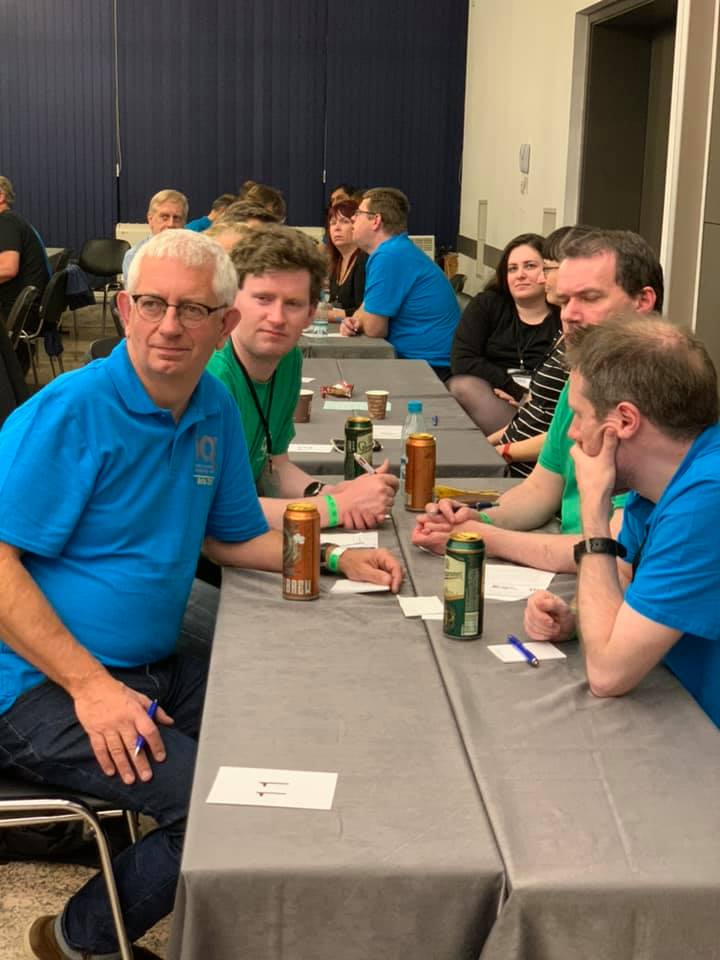
In the individual competition, Ireland’s Lorcan Duff scored an impressive 80/100 to make the 10-man final for the third year running. He didn’t manage to repeat the heroics of last year’s final (in which he’d climbed from 10th to 4th place), but a steady performance meant he finished where he’d started the final in 9th place (impressively ahead of multiple European and World champion Olav Bjortomt in 10th). Outside of the top 10, the field was very tightly packed in this event, meaning that a point or two could easily make a difference of 10 or 15 places. The other Irish scores were:
Dave McBryan 73 (27th)
Mark Henry 72 (29th)
David Lea 68 (45th)
Kevin Jones 67 (51st)
Patrick Carthy 65 (63rd)
Stephen Dodding 61 (85th)
Joseph O’Donoghue 35 (186th)
Lorcan also picked up Ireland’s first medal of 2019 with a bronze in the specialist Television quiz. None of us came close to matching that in the three other specialist quizzes, with the best Irish results in each of those being:
Business: Patrick Carthy 23rd
Performing Arts: Kevin Jones 34th
Geography: Dave McBryan 44th
Ireland’s second medal was a gold – it came in the Club Team event, where the multinational squad of Sage Supersilia, consisting of Mark Henry (Ireland), Sebastian Klussman (Germany), Mark Ryder (USA) and Igor Habal (Estonia) defended the title they won last year by a comfortable margin.
Along with his partner Mark Grant of Wales, Mark Henry was also the top Irish finisher in the Pairs competition, leading for much of the way, but finishing in a 3-way tie for 3rd place on 82/100. Unfortunately for the Marks, the countback system that had been so kind to Ireland in the Nations Cup worked against them here, breaking the tie to leave them missing out on a medal in 5th. Other Irish results were:
David Lea (with Kathryn Johnson of England) 73 (19th)
Dave McBryan (with Sebastian Klussman of Germany) 70 (25th)
Lorcan Duff (with Dirk Vielhuber of Germany) 65 (37th)
Stephen Dodding (with brother Jamie Dodding of England) 63 (42nd)
Kevin Jones & Patrick Carthy (in the only all-Irish pairing) 63 (43rd)
Joseph O’Donoghue (with Dalila Xavier of Portugal) 25 (105th)
Two medals, another Nations Cup semi-final and a host of other respectable results makes it not a bad year for Ireland. Roll on the Olympiad in Krakow 2020!
Dave McBryan, November 2019
